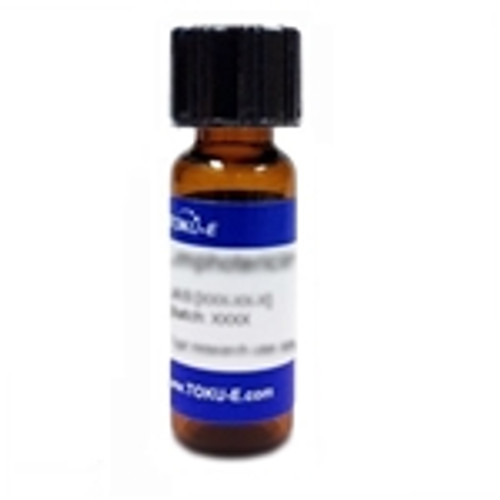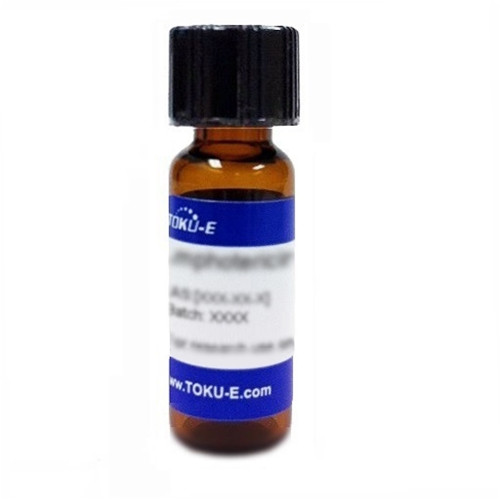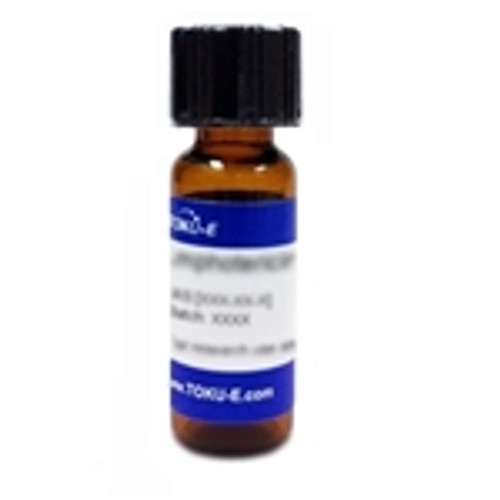Saccharocarcin B is an unusual tetronic acid structurally related to kijanimicin, chlorothricin, tetrocarcins and versipelostatin, which has pronounced activity against Gram positive bacteria and Chlamydia trachomatis. Limited availability has restricted further investigation of this metabolite, however several members of this class have received considerable literature focus.
Saccharocarcin B is soluble in ethanol, methanol, DMF or DMSO.
Saccharocarcin B is soluble in ethanol, methanol, DMF or DMSO.
| Mechanism of Action | Versipelostatin inhibits transcription from the promoter of GRP78, a gene that is activated as part of a stress signalling pathway under glucose deprivation resulting in unfolded protein response (UPR), causing death of glucose-deprived cells. Tetrocarcin A appears to target the phosphatidylinositide-3'-kinase/Akt signalling pathway. |
| References | A family of novel macrocyclic lactones, the saccharocarcins produced by Saccharothrix aerocolonigenes subsp. antibiotica. I. Taxonomy, Fermentation, Isolation, and Biological Properties. Horan A.C. et al. , J. Antibiot. 1997, 50, 119. A family of novel macrocyclic lactones, the saccharocarcins produced by Saccharothrix aerocolonigenes subsp. antibiotica. II. Physico-chemical Properties and Structure Determination. Hegde V.R. et al. , J. Antibiot. 1997, 50, 126. Effect on tumor cells of blocking survival response to glucose deprivation. Park H.R. J. Natl. Cancer. Inst. 2004, 96, 1300. Apoptosis and inactivation of the PI3-kinase pathway by tetrocarcin A in breast cancers. Nakajima H. Biochem Biophys Res Commun. 2007, 356, 260. |







